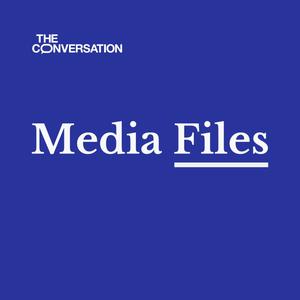
Media Files
The Conversation
- 25 minutes 16 secondsInternet sabbaths and surveillance capitalism in the COVID-19 era: William Powers on what’s changed since Hamlet’s Blackberry
 Shutterstock
ShutterstockCOVID-19 has affected our relationship with technology in many ways, from the pleasures of mass online choirs to the perils of the endless Zoom meetings rendering us “zoombies”.
Connectivity is so hard-wired in our lives, many are re-assessing the virtues of being disconnected.
Ten years ago, US journalist William Powers published Hamlet’s BlackBerry: Building a Good Life in the Digital Age, a book that urged us to take an “internet sabbath” every now and again.
 US author William Powers.
https://www.williampowers.com/
US author William Powers.
https://www.williampowers.com/
It was a prescient idea even if the book’s title sounds rather retro now, but there was a reason for his choice, as he explains today on Media Files.
Powers is a journalist who used to work at The Washington Post and is now an online technology consultant, and he joined me by Zoom from his home in Cape Cod in Massachusetts.
Read more: 'Suck it and see’ or face a digital tax, former ACCC boss Allan Fels warns Google and Facebook
Additional credits
Theme music: Susie Wilkins.
With thanks to Chris Scanlon from Deakin University for production assistance.
Image
Shutterstock

Matthew Ricketson does not work for, consult, own shares in or receive funding from any company or organisation that would benefit from this article, and has disclosed no relevant affiliations beyond their academic appointment.
30 September 2020, 2:54 am - 30 minutes 4 seconds‘Suck it and see’ or face a digital tax, former ACCC boss Allan Fels warns Google and Facebook

Have you used Google lately and been greeted by a yellow warning saying that the way Australians search on Google is under threat?
To understand why these messages are appearing, Media Files interviewed former chair of the Australian Competition and Consumer Commission (ACCC), Professor Allan Fels, and CEO of the Public Interest Journalism Initiative (PIJI), Anna Draffin (full recording above, recorded from home due to the pandemic).
This episode of Media Files is about world-first laws to be introduced later this year that will force Google and Facebook to pay for news on their sites to help fund public interest journalism.
The yellow warning messages by Google (which also appear on its sister site, YouTube) aim to garner public support for a campaign to pressure the federal government to dump revenue-sharing laws planned for later this year.
In a similar vein, Facebook’s Australian and New Zealand director of public policy, Mia Garlick, argued in the Sydney Morning Herald before the draft laws were released, that Facebook already provided top value to media outlets with
billions of opportunities for publishers to monetise their stories, gain new paying subscribers, serve ads, and keep Australians on their websites.
And while Allan Fels said he’s not surprised by the tech giants fighting back against the new law, the public will expect the tech giants to “suck it and see”.
“I think people will ask Google and Facebook to ‘suck it and see’ to see what turns out instead of just going home with a cricket bat or baseball bat,” said Fels.
“It’s normal, it’s par for the course, in ACCC matters, that parties make threats […] with jobs, investment, higher prices, leave the country. Everything!”.
Fels believes the Morrison government may well respond with a new digital tax if Google or Facebook pulls some business out of Australia, like it did in Spain in 2014. Then, the Spanish government charged Google copyright fees for using news snippets, so Google shut down its news service.
“Personally, I think that the government has got this huge stick in the closet if Google walks or partly walks, and that is to put on a digital tax,” Fels said, adding that
A digital tax is being talked about globally, mainly at the OECD. And virtually every member of the OECD wants to put a digital tax on the platforms except the US. Certainly the US under Donald Trump […] But even if the US continue to oppose it, I think a lot of countries are just going to proceed with their own digital tax.
How did we get here?
Following the ACCC digital platforms inquiry report last year, the consumer watchdog recommended the two tech giants pay Australia’s major newsrooms (excluding the SBS and ABC) an annual fee to use news on their sites.
Anna Draffin and the big media companies agree with the ACCC’s findings that media companies cannot fairly compete with the digital platforms to win advertising revenue, and that this revenue shortfall has led to masthead closures and journalism job cuts.
Draffin said its introduction is urgent as COVID-19 has accelerated the demise of many news outlets, particularly in regional Australia.
At first, the ACCC was to oversee a voluntary code with the technology companies negotiating in good faith with the big news outlets.
But, unhappy with the progress of the bargaining talks, Treasurer Josh Frydenberg announced in April the code would be mandatory. The government released draft laws in July sparking Google’s fear campaign warning its users that Australians “search experience will be hurt by new regulation”.
In an August 24 blog post, Google argues it helps “more than 20 million Australians” and is unlikely to shut down Australian news from its search engines.
 Google Australia’s blog post said the firm helps ‘more than 20 million Australians and over one million businesses in Australia.’
Google
Google Australia’s blog post said the firm helps ‘more than 20 million Australians and over one million businesses in Australia.’
Google
Facebook contends news is just a fraction of the information on its platform and the mandatory code is unnecessary.
ACCC chair Rod Sims, on the other hand, argues that
News content brings significant benefits to the digital platforms, far beyond the limited direct revenue generated from advertising shown against a news item […] News media businesses should be paid a fair amount in return for these benefits.“
The mandatory code includes transparency measures to force the digital platforms to share data and insights about how it uses algorithms to rank news content online.
Draffin said while the proposed laws are welcome, at this stage, they do not include the public broadcasters nor do they include smaller newsrooms with annual turnover under A$150,000.
"The code alone isn’t necessarily going to be the solution particularly for that [smaller] end of the market,” said Draffin.
“New market entrants would largely sit outside of any benefit from the code. So there could be room for a loan or venture capital fund for start-ups as a separate policy setting,” she said.
The draft laws force the companies to negotiate for up to three months or face a binding binary dispute resolution where independent arbiters determine the winning bid among the bargaining parties. Breaches of the news laws would attract fines of up to $10 million or 10% of a company’s annual domestic turnover.
Public consultation into the draft mandatory bargaining code closes this Friday, August 28.
Additional credits
Theme music: Susie Wilkins.
Image
Shutterstock

Andrea Carson receives funding from the Australian Research Council to examine public policy decision making and the media. She also has a Facebook grant to research misinformation in the Asia Pacific. She is affiliated with the Public Interest Journalism Initiative's expert research panel.
Andrew Dodd receives funding from the Australian Research Council. He is affiliated with the Public Interest Journalism Initiative as a member of its research committee.
26 August 2020, 2:23 am - 35 minutes 13 secondsMedia Files: Media companies are mad as hell at tech giants and don’t want to take it anymore. But what choice do they have?
 Big Tech companies have built a better trap for profiting from consumers' attention than the traditional media can offer. Shutterstock
Big Tech companies have built a better trap for profiting from consumers' attention than the traditional media can offer. ShutterstockMedia companies around the world are in an existential funk. The tech giants - Facebook, Google, Apple and Amazon - have built a better mousetrap for profiting from consumers’ attention than the traditional media can offer. To add insult to injury, they use the media companies’ journalism as bait but don’t want to pay for it.
Big Tech firms also don’t see themselves as publishers and operate untroubled by demands for responsibility that come with being one.
No wonder that, according to a new international survey, media companies are increasingly unhappy with their lot.
In this episode of Media Files, Matthew Ricketson and Andrew Dodd talk with the survey’s author, Robert Whitehead.
Whitehead, a former editor-in-chief of The Sydney Morning Herald in the days when the masthead still made millions for what was then called Fairfax Media, shares his thoughts on what media companies could do and whether their calls for regulatory change will succeed.
Additional credits
Recording and production: Gavin Nebauer and Andy Hazel.
Theme music: Susie Wilkins.
Image
Shutterstock

The authors do not work for, consult, own shares in or receive funding from any company or organisation that would benefit from this article, and have disclosed no relevant affiliations beyond their academic appointment.
11 November 2019, 2:17 am - 44 minutes 2 secondsMedia Files: investigative journalist Bastian Obermayer, who led the Panama Papers tax exposé
 The Panama Papers was the biggest-ever collaboration for investigative journalism, involving 400 journalists in 80 countries who collectively produced 6,000 stories in 100 different media outlets. Shutterstock
The Panama Papers was the biggest-ever collaboration for investigative journalism, involving 400 journalists in 80 countries who collectively produced 6,000 stories in 100 different media outlets. ShutterstockToday on Media Files, a podcast on major themes and issues in the media, we meet Bastian Obermayer, the Pulitizer prize-winning journalist who led the Panama Papers investigation into global tax evasion and money laundering.
It was the biggest-ever collaboration for investigative journalism, involving 400 journalists in 80 countries who collectively produced 6,000 stories in 100 different media outlets.
Bastian Obermayer is the deputy editor for investigations at the Süddeutsche Zeitung in Munich, Germany. He was the person who received the original email from the anonymous source known as John Doe.
Bastian recently joined the Centre for Advancing Journalism at the University of Melbourne, courtesy of the Macgeorge fellowship. He recorded this discussion with Andrew Dodd for Media Files.
New to podcasts?
Podcasts are often best enjoyed using a podcast app. All iPhones come with the Apple Podcasts app already installed, or you may want to listen and subscribe on another app such as Pocket Casts (click here to listen to Media Files on Pocket Casts).
You can also hear us on any of the apps below. Just pick a service from one of those listed below and click on the icon to find Media Files.
Additional credits
Producers: Andy Hazel and Henning Goll.
Theme music: Susie Wilkins.
Image
Shutterstock

Andrew Dodd does not work for, consult, own shares in or receive funding from any company or organisation that would benefit from this article, and has disclosed no relevant affiliations beyond their academic appointment.
19 September 2019, 4:25 am - 30 minutes 3 secondsMedia Files: ACCC seeks to clip wings of tech giants like Facebook and Google but international effort is required
 AAP/EPA/JULIAN STRATENSCHULTE
AAP/EPA/JULIAN STRATENSCHULTEIn a landmark report, the Australian Competition and Consumer Commission has urged the federal government to fix the uneven market power of digital companies like Facebook and Google that make it almost impossible for traditional media companies to compete for advertising and audiences.
The Digital Platforms Inquiry report, released in late July, lists 23 recommendations that cover all aspects of how and where we get our news. The ACCC’s proposed changes span competition law, consumer protections, media regulation and privacy laws.
Today, the Media Files team talks to a media owner and journalism expert to look closely at what the ACCC has suggested needs to change so media businesses remain economically viable and able to produce reliable news in all parts of Australia.
Media Files’ guests are media academic and journalist Margaret Simons from Monash University and Ross McPherson, editor-in-chief of the McPherson Media Group, publisher of 14 newspapers in regional Victoria and New South Wales.
New to podcasts?
Podcasts are often best enjoyed using a podcast app. All iPhones come with the Apple Podcasts app already installed, or you may want to listen and subscribe on another app such as Pocket Casts (click here to listen to Media Files on Pocket Casts).
You can also hear us on any of the apps below. Just pick a service from one of those listed below and click on the icon to find Media Files.
Additional credits
Producers: Andy Hazel and Gavin Nebauer.
Theme music: Susie Wilkins.
Image
AAP/EPA/JULIAN STRATENSCHULTE

Andrea Carson was invited to give her expert views to the ACCC during the inquiry and is the author of 'Investigative journalism, democracy and the digital age' published by Routledge, which is quoted in the ACCC's final report. She is also a chief investigator on an Australian Research Council grant examining the role of media coverage and other factors on public policy making.
Matthew Ricketson is a chief investigator on an Australian Research Council grant led by Deakin University about developing new ways to support the survival of country media in the digital era. He is a member of the board of the Public Interest Journalism Foundation.
Andrew Dodd does not work for, consult, own shares in or receive funding from any company or organisation that would benefit from this article, and has disclosed no relevant affiliations beyond their academic appointment.
6 August 2019, 6:07 am - 21 minutes 55 secondsMedia Files: Washington Post weather editor Jason Samenow on how weather coverage is evolving – and building audience growth
 The world's weather is changing and the media needs to keep up. Flickr/Shannon Dizmang, CC BY
The world's weather is changing and the media needs to keep up. Flickr/Shannon Dizmang, CC BYWhen he founded the blog CapitalWeather.com 15 years ago in Washington DC, Jason Samenow was working for the US government as a climate change analyst. A full-time media career was probably the last thing on his mind.
But the blog – which became known as the Capital Weather Gang – gained traction, and was gradually absorbed by The Washington Post.
These days, Samenow is chief meteorologist and weather editor for the Post, where his work is driving audience growth and engagement.
 Jason Samenow began his career as a climate change analyst before transitioning into journalism.
Jason Samenow, Author provided (no reuse)
Jason Samenow began his career as a climate change analyst before transitioning into journalism.
Jason Samenow, Author provided (no reuse)
Lawrie Zion caught up with him for a chat about how digital media has changed the way that we connect to the weather, and why it’s wrong for weather editors to leave climate change out of the discussion.
New to podcasts?
Podcasts are often best enjoyed using a podcast app. All iPhones come with the Apple Podcasts app already installed, or you may want to listen and subscribe on another app such as Pocket Casts (click here to listen to Media Files on Pocket Casts).
You can also hear us on any of the apps below. Just pick a service from one of those listed below and click on the icon to find Media Files.
Additional credits
Producer: Andy Hazel.
Theme music: Susie Wilkins.
Image
Flickr/Shannon Dizmang

The authors do not work for, consult, own shares in or receive funding from any company or organisation that would benefit from this article, and have disclosed no relevant affiliations beyond their academic appointment.
4 July 2019, 3:54 am - 25 minutes 44 secondsMedia Files: Australians’ trust in news media is falling as concern over ‘fake news’ grows
 The report found that Australian news consumers access news less often and have lower interest in it compared to citizens in many other countries. Shutterstock
The report found that Australian news consumers access news less often and have lower interest in it compared to citizens in many other countries. ShutterstockOn today’s episode, we hear from Caroline Fisher, an assistant professor of journalism at the University of Canberra and lead author of the 2019 Australian edition of the the Digital News Report.
The annual report has found that public trust in the news media is falling. It also finds that Australians are worried about “fake news”. Perhaps as a result, we access news less often and have lower interest in it compared to citizens in many other countries. Yet, when it comes to keeping us up to date, we think the news media passes the test.
It’s the fifth year of the report, which comes from the Reuters Institute for the Study of Journalism at Oxford University. There are 38 countries involved and it’s an annual snapshot of media: how they’re using it and what they think of it.
You can hear the full interview and details of the report here on Media Files.
New to podcasts?
Podcasts are often best enjoyed using a podcast app. All iPhones come with the Apple Podcasts app already installed, or you may want to listen and subscribe on another app such as Pocket Casts (click here to listen to Media Files on Pocket Casts).
You can also hear us on any of the apps below. Just pick a service from one of those listed below and click on the icon to find Media Files.
Additional credits
Producer: Andy Hazel.
Theme music: Susie Wilkins.
Image
Shutterstock

The authors do not work for, consult, own shares in or receive funding from any company or organisation that would benefit from this article, and have disclosed no relevant affiliations beyond their academic appointment.
20 June 2019, 3:19 am - 30 minutes 10 secondsMedia Files: Investigative reporter Louise Milligan on Cardinal Pell and redactions in the Royal Commission’s report
 David Crosling/AAP
David Crosling/AAPCardinal George Pell’s appeal against child sexual assault convictions kicks off this week, but when that’s over Pell still has another reckoning to face: the unredacted findings of Royal Commission into Institutional Responses to Child Sexual Abuse.
When the royal commission handed down its massive report in late 2017, several sections were redacted until after any legal proceedings against Cardinal Pell were concluded.
In this episode of Media Files, Matthew Ricketson talks with ABC investgative reporter Louise Milligan – author of Cardinal: the rise and fall of George Pell – about the issues and incidents the royal commission investigated.
New to podcasts?
Podcasts are often best enjoyed using a podcast app. All iPhones come with the Apple Podcasts app already installed, or you may want to listen and subscribe on another app such as Pocket Casts (click here to listen to Media Files on Pocket Casts).
You can also hear us on any of the apps below. Just pick a service from one of those listed below and click on the icon to find Media Files.
Additional credits
Producer: Andy Hazel.
Theme music: Susie Wilkins.
Image
David Crosling/AAP

Matthew Ricketson is chair of the board of the Dart Centre for Journalism and Trauma, Asia-Pacific, which has done work to support journalists who have reported extensively on child sexual abuse.
4 June 2019, 7:26 am - 24 minutes 29 secondsMedia Files: Facebook’s Mia Garlick on #Ausvotes2019 and how Australian MPs use social media
 Facebook's Mia Garlick says, 'we're frequently seeing politicians use the Facebook Live tool to augment a press conference or to directly speak to voters about the issues of importance of the day.' AAP/MICK TSIKAS
Facebook's Mia Garlick says, 'we're frequently seeing politicians use the Facebook Live tool to augment a press conference or to directly speak to voters about the issues of importance of the day.' AAP/MICK TSIKASAs we enter the final straight of the Australian election campaign, we ask you: how much of your information about the issues and the candidates comes from social media?
Today’s Media Files podcast examines the role of social media in election campaigns, including the spread of “fake news” and foreign political interference.
Joining us is Facebook’s policy director Mia Garlick to help us understand the scale of traffic on social media.
New to podcasts?
Podcasts are often best enjoyed using a podcast app. All iPhones come with the Apple Podcasts app already installed, or you may want to listen and subscribe on another app such as Pocket Casts (click here to listen to Media Files on Pocket Casts).
You can also hear us on any of the apps below. Just pick a service from one of those listed below and click on the icon to find Media Files.
Additional credits
Producers: Andy Hazel and Marg Purdam.
Theme music: Susie Wilkins.
Image
Mick Tsikas/AAP

Andrea Carson receives funding from The Australian Research Council for a discovery on the role of big data in public policy decision-making. She has previously researched digital newsrooms on a Facebook-funded research project in 2017.
Andrew Dodd does not work for, consult, own shares in or receive funding from any company or organisation that would benefit from this article, and has disclosed no relevant affiliations beyond their academic appointment.
13 May 2019, 4:59 am - 22 minutes 41 secondsMedia Files: Investigative journalist Adele Ferguson on the ‘disappointing’ banking royal commission and how she works with whistleblowers
 Adele Ferguson, the celebrated journalist who many credit as the driving force behind the banking royal commission, says that the commission 'didn't go anywhere near far enough.' KYM SMITH/AAP
Adele Ferguson, the celebrated journalist who many credit as the driving force behind the banking royal commission, says that the commission 'didn't go anywhere near far enough.' KYM SMITH/AAPToday on Media Files, it’s journalism versus the big banks. We’re hearing from Adele Ferguson, the celebrated journalist who many credit as the driving force behind the banking royal commission.
Adele Ferguson is a reporter with the Sydney Morning Herald and the Age and a columnist for the Australian Financial Review. Over many years, her reporting has exposed the way financial institutions have flouted the rules and how regulators like the Australian Securities and Investments Commission (ASIC) have consistently failed to hold financial institutions to account.
New to podcasts?
Podcasts are often best enjoyed using a podcast app. All iPhones come with the Apple Podcasts app already installed, or you may want to listen and subscribe on another app such as Pocket Casts (click here to listen to Media Files on Pocket Casts).
You can also hear us on any of the apps below. Just pick a service from one of those listed below and click on the icon to find Media Files.
Additional credits
Producers: Andy Hazel and Gavin Nebauer
Theme music: Susie Wilkins.
Image
KYM SMITH/AAP

The authors do not work for, consult, own shares in or receive funding from any company or organisation that would benefit from this article, and have disclosed no relevant affiliations beyond their academic appointment.
23 April 2019, 1:05 am - 43 minutes 39 secondsPODCAST: Pell trial reporters, a judge and a media lawyer on why the suppression order debate is far from over
 Today on Media Files we look at the suppression order that prevented the Australian media reporting the Pell case - and why rushing to judge-only criminal trials may be a mistake. AAP/PAUL TYQUIN
Today on Media Files we look at the suppression order that prevented the Australian media reporting the Pell case - and why rushing to judge-only criminal trials may be a mistake. AAP/PAUL TYQUINWhen Judge Peter Kidd sentenced Cardinal George Pell last week, it was broadcast live on radio and television. It was a stark contrast to the preceding trial, which was subject to a suppression order that prevented any coverage of the proceedings.
Today on Media Files we look at the suppression order that prevented the Australian media reporting the case, even when the verdict was widely known and was being circulated on social media and on the front pages of newspapers around the world.
On the day of the Pell sentence the University of Melbourne’s Centre for Advancing Journalism brought together several experts with wide-ranging experiences of suppression orders to discuss how they affect the public’s right to know and whether the laws should be reformed.
The panellists are:
Associate Professor Jason Bosland, Co-Director of the Centre for Media and Communications Law at Melbourne Law School, where he teaches media and communications law. His primary research interests lie in media law, including defamation and privacy, open justice and the media, contempt of court and freedom of speech
Melissa Davey, Melbourne bureau chief for The Guardian. She is an experienced news journalist who previously worked as a reporter for Fairfax newspapers, including The Sydney Morning Herald and the Sun Herald. She sat through every day of the George Pell trial
Lucie Morris-Marr, a reporter who, like Melissa, sat through the entire Pell proceedings. She worked at the Daily Mail, London, Marie Claire Australia and the Herald Sun in Melbourne before covering the Pell trial for the New Daily. She is the author of a book on Pell entitled Fallen: The inside story of the secret trial and conviction of Cardinal George Pell
Frank Vincent AO QC, who served 16 years as a judge of the Supreme Court of Victoria followed by a further eight years as a judge of the Court of Appeal. He was Deputy Chair and then Chair of the Victorian Adult Parole Board, a position he occupied for 17 years. In 2017 he conducted a review of court suppression orders and the Open Courts Act 2013.
The forum was chaired by Dr Denis Muller of the Centre for Advancing Journalism at the University of Melbourne.
New to podcasts?
Podcasts are often best enjoyed using a podcast app. All iPhones come with the Apple Podcasts app already installed, or you may want to listen and subscribe on another app such as Pocket Casts (click here to listen to Media Files on Pocket Casts).
You can also hear us on any of the apps below. Just pick a service from one of those listed below and click on the icon to find Media Files.
Recorded at the University of Melbourne’s Centre for Advancing Journalism. Producer: Andy Hazel.
Theme music by Susie Wilkins.
Image:
PAUL TYQUIN/AAP

Andrew Dodd does not work for, consult, own shares in or receive funding from any company or organisation that would benefit from this article, and has disclosed no relevant affiliations beyond their academic appointment.
21 March 2019, 3:01 am - More Episodes? Get the App
Your feedback is valuable to us. Should you encounter any bugs, glitches, lack of functionality or other problems, please email us on [email protected] or join Moon.FM Telegram Group where you can talk directly to the dev team who are happy to answer any queries.



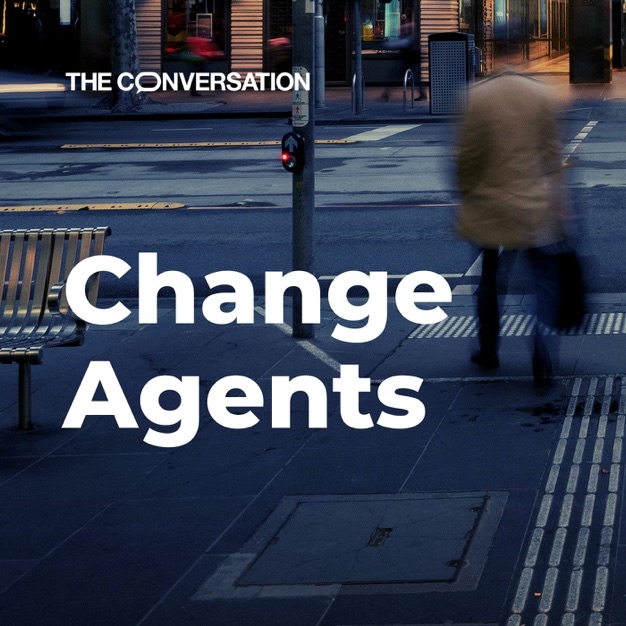 Change Agents
Change Agents
 Trust Me, I'm An Expert
Trust Me, I'm An Expert
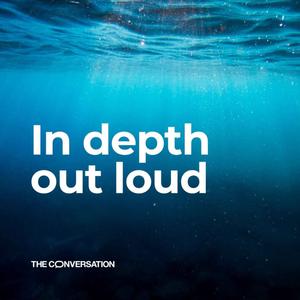 In Depth, Out Loud
In Depth, Out Loud
 Essays On Air
Essays On Air
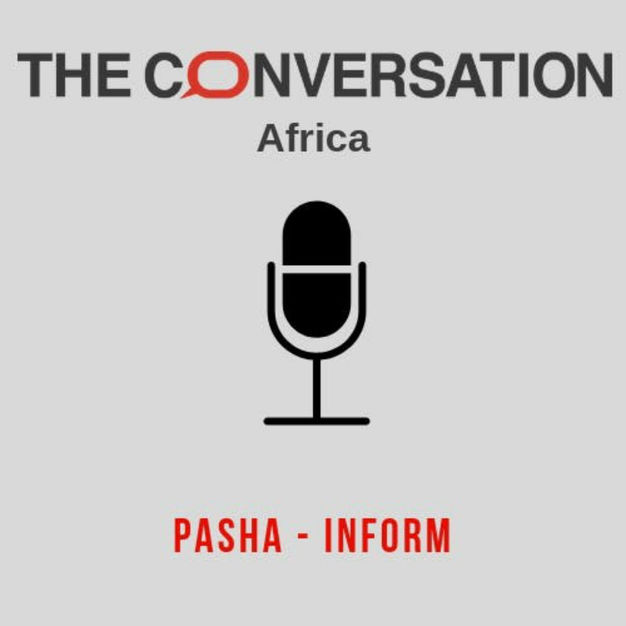 Pasha - from The Conversation Africa
Pasha - from The Conversation Africa
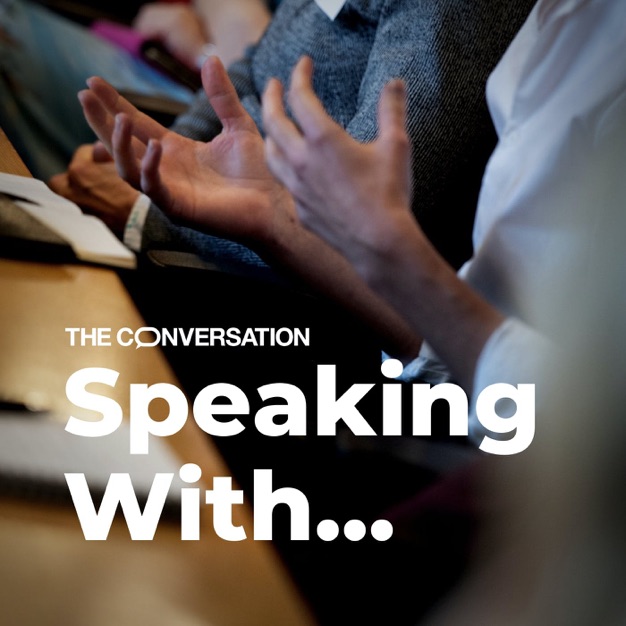 Speaking with...
Speaking with...